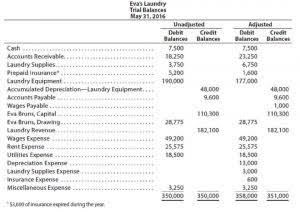
In most cases, this means cloud-based legal accounting software that integrates with your existing tech stack. Consider what you need, and seek out accounting software that fits those needs. Practice Panther law practice management software is intuitive, easy to use, and secure. This lawyer billing software is used by thousands of law firms to accounting services for law firms streamline their work processes and improve productivity. It helps law firms to get paid faster, never miss a deadline, track expenses and billable time seamlessly. This includes keeping strict records, tracking tax deductions, ensuring correct bank account setup, and choosing the right accounting method to develop a clear bookkeeping system.
Interest on Lawyers Trust Accounts (IOLTA)
Ensuring a culture of ethical awareness and fostering open communication within the firm will help to identify and address potential threats early on, protecting the firm’s reputation and fostering trust with its clients. A key aspect for law firm accounting teams is the accurate calculation of FUTA tax rate. The tax rate stands at 6%, which applies to the first $7,000 earned by an employee during the year1. It’s an employer-only paid tax, which is essential to consider when working on payroll and benefits administration. It may also be helpful to read law firm accounting software reviews to get an idea of the user experience of other firms who have tried the potential software before you.
- It’s worth checking if the software you’re considering offers a mobile app and, if so, what features will help you manage your business while you’re away from the office.
- View Padgett President Roger Harris’ congressional testimony on the impact of the Corporate Transparency Act and the BOI reporting requirements here.
- Then, we got to work testing some of the most important features, like invoicing tools, accounts payable and receivable management, payment reminders, support for contractors and financial reporting.
- Bookkeepers ensure that every financial transaction is accurately recorded and categorized, providing a clear and up-to-date picture of the firm’s financial status.
- Failure to do so can lead to serious consequences, such as the commingling of client funds with operational funds, resulting in ethical breaches and potential legal actions.
- It is crucial to never commingle trust funds with the law firm’s operating funds and to promptly disburse funds as required.
- Proper bookkeeping and accounting ensure compliance with these obligations, such as filing accurate tax returns, maintaining trust accounts for client funds (if applicable), and adhering to accounting standards.
Profit & Wealth Tax Advisors
As law firms navigate the complexities of financial management, leveraging technology becomes indispensable for maintaining a competitive edge and upholding the highest standards of client trust and regulatory adherence. The right legal accounting software helps you better manage and improve your law firm’s cash flow by providing a clear, real-time picture of the firm’s financial data. One of the easiest ways to make accounting for lawyers quicker, simpler, and more accurate is to use accounting software built for law firms.
- You can get an accounting job with a bachelor’s degree or even less, but the “Big Four” accounting firms (Deloitte, Ernst & Young, KPMG, and PricewaterhouseCoopers) want one.
- TurboTax also prides itself in providing accurate filings and promises that if a mistake is made due to their negligence and you’re asked to pay a penalty by the IRS, you’ll be compensated for the entire fine.
- Errors in tracking can lead to client disputes, lengthy collections processes, and lost revenue.
- Unfortunately, to use LeanLaw’s core accounting features, such as time and expense tracking, you need a QuickBooks Online account.
- Cloud-based law firm accounting software will help you stay compliant with applicable ethics rules.
- The purpose of accounting for law firms should extend beyond compliance with lending, tax and state bar reporting requirements.
Data & document management
Contact us today to learn more about how we can help with your accounting needs. Accurate accounting for law firms requires the use of a specialist who understands the operational challenges you face and the opportunities that lie ahead. Effective bookkeeping and accounting for law firms requires more than Excel spreadsheets. Technology is a costly, but necessary, expenditure for law firms at they aim to improve efficiency and lower costs. Law firms must adhere to strict regulatory requirements related to their accounting practices.

Reliable forecasting can help law firms identify potential risks and opportunities, and plan their strategies accordingly. Some key aspects in forecasting include revenue growth, https://www.bookstime.com/ expense trends, and market conditions. Integrating both budgeting and forecasting into a law firm’s financial management will contribute to sustainable business growth.
Incorrect Differentiation of Income and Revenue
- Even though interest rates on business accounts are traditionally low, having a cash surplus in a business savings account can improve your likelihood of being approved for a loan.
- Legal accounting software with billing features (such as the ability to create or track invoices) or that connects with your practice management software helps simplify your workflows.
- Suppose you choose accounting software that automatically syncs payroll functionality with time-tracking and expense apps.
- Also, ask if you are eligible to receive a tax credit for paying timely state unemployment taxes.
- Before proceeding further, let’s clarify the difference between bookkeeping and accounting.
- If you’re compensating your employees (or the client is compensating you) for all your travelling, it becomes crucial to track the distance accurately.
You’ll have accurate financial statements on hand, which can show you how your practice is performing at any given moment. And it will be a lot easier to work with bookkeepers, accountants, new partners, and buyers, if you ever decide to sell the business. After you process your pay run using law firm accounting software, your accounts will be updated automatically. QuickBooks Online, for instance, works with Clio’s practice management software to sync contacts, invoices, financial information, trust transactions and disbursements. When you use these tools together through their Clio integration, this eliminates repeat data entry—saving you time and effort. If your law firm doesn’t already have business bank accounts, it’s time to open them.

Along with maintaining legal compliance, it also helps you track your expenses and transactions from the trust account. Speaking of tracking, PCLaw helps you track your working hours so that you can accurately charge your clients. Small and growing law firms will love that this legal accounting software allows you to onboard unlimited users no matter your plan — company-wide accounting has never been more cost-effective. 24/7 support, straightforward budgeting, and configurable reports further enhance the overall experience. Here too, you can automate the process and have NetSuite automatically send invoices to your clients, process their online payments and keep a record of the transaction and financial data.
Recording Financial Transactions

Using an advanced time and billing software can help you resolve such issues and generate precise invoices and time records. If you are considering switching accounting software, the best time to do so is at the end of your business’s fiscal year. Several programs we evaluated let you add more than one business to your account, though some companies charge extra for this convenience.
Small Business Resources
- If you’re a lawyer in Texas, check out our comprehensive guide, What You Need to Know About IOLTA Accounts in Texas.
- That involves confirming that your trust ledger, client ledgers, and trust account statement balances agree with each other.
- While the specifics can vary by jurisdiction, when using an IOLTA account, any interest earned on the account is collected and forwarded to the state bar (usually to funds for social justice).
- Financial reports should include profit and loss statements, balance sheets, and cash flow statements, as well as law firm-specific reports that focus on billing, collections, and trust account management.
Whether you’re good with numbers and spreadsheets or not, every lawyer needs to understand the basic role that bookkeeping plays in their business. Unless the IRS requires you to use the accrual method—for law firms, this rule only kicks in once you start making $10m a year—which method is best will depend on your accounting needs. While mismanaging an IOLTA account carries stiff penalties, many law schools offer little to no training when it comes to managing trust accounts. As a result, attorneys often find themselves making several common mistakes again and again. While there are many law firm accounting options to choose from, the key is to look for options that have the features that matter most to your firm. Viewing and evaluating your firm’s financial performance is key to its success and growth.
This accounting solution feature comes with a separate dashboard where you’ll have a copy of the expense receipt along with additional details such as subject, date, amount, and employee name. At a glance, you’ll have everything you need to verify the claim and do financial reporting. And since your bank accounts will be connected to Xero, you can directly reimburse the claims from within the platform, just as you pay bills. This technological advancement not only simplifies the complexities of legal accounting but also empowers law firms to focus on their core mission—delivering exceptional legal services. To manage tax compliance effectively, law firms can benefit from working with a Certified Public Accountant (CPA) who specializes in law firm accounting. CPAs can provide valuable guidance in collecting, interpreting, and using financial data to help the firm stay compliant, prepare financial statements, and file accurate tax returns.
 News85.in Latest Hindi NewsPortal
News85.in Latest Hindi NewsPortal
